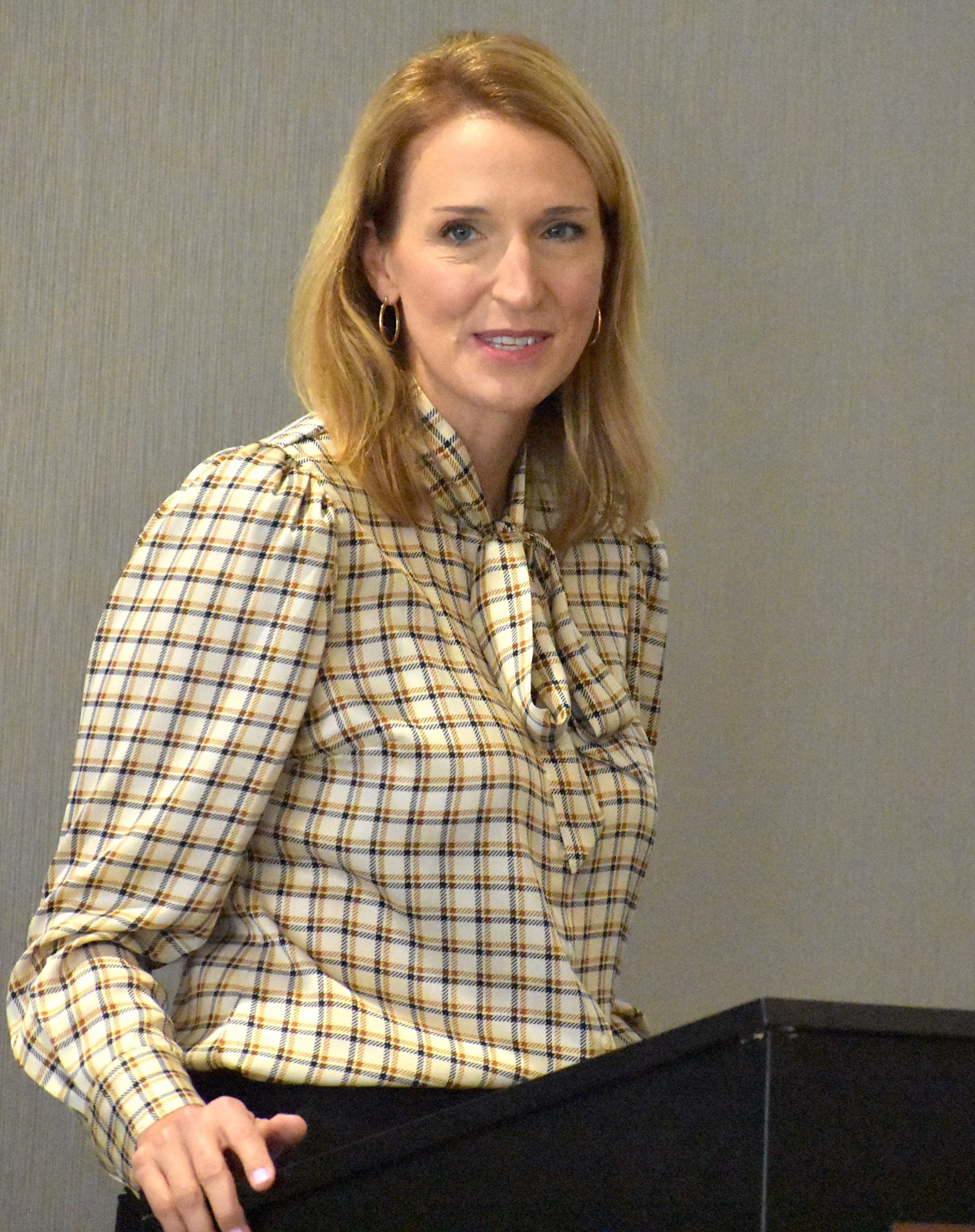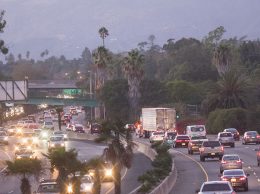State chamber president talks vaccine mandates, legislative agenda in Goleta
IN THIS ARTICLE
- Central Coast Topic
- pacbiztimes Author
By pacbiztimes Tuesday, December 7th, 2021
With just a few weeks left until the end of 2021, the largest business advocate to California government has its eyes set on the new year.
The California Chamber of Commerce, which works at the state and federal levels to influence government actions affecting businesses in the state, says several policies are going to be hot topics in 2022. To name a few: Housing and environmental issues; consumer privacy protection; water in drought-stricken regions; and proposals imposing plastic recycling mandates on manufacturers.
The chamber is also expecting California-specific legislation about COVID-19 vaccination mandates, and workplace virus-related regulations will be top-of-mind policy issues for the business community, according to Jennifer Barrera, the president of the California Chamber. She spoke on Dec. 3 about the state chamber’s legislative agenda for 2022, at a meeting in Goleta of the Tri-County Chamber Alliance.

California has already enacted COVID-19 vaccinate-or-test mandates for state employees and health care workers, as well as educators in public and private schools. In September, President Joe Biden announced a federal COVID-19 vaccination or testing mandate for all employers with 100 or more employees.
The federal mandate has been put on hold by a federal appeals court and is not currently set to go into effect by its original deadline of Jan. 4.
Some employers have mandated COVID-19 vaccinations for their workers in California counties and cities. Thousand Oaks-based Amgen, one of the largest biotech companies in the world, required all staff in the United States to be fully vaccinated against COVID-19 by Nov. 1.
Barrera told the regional chamber alliance that a COVID-19 vaccination requirement in California will be a topic of discussion in Sacramento “probably at the beginning of the year,” especially with the omicron variant of the coronavirus now spreading.
A statewide mandate is among the most debated issues, Barrera said, and legislators are considering a vaccine mandate on “employers who are under the federal employee threshold.”
“The smaller employers are who they are looking at imposing the vaccine mandate on,” she said.
California lawmakers have also explored vaccination incentives, such as sick leave for people to receive the shot and those who have side effects or breakthrough infections. Earlier in the pandemic, the state and federal governments instituted extra sick leave for employees who miss work for COVID-related reasons.
The California Division of Occupational Safety and Health, known as Cal/OSHA, provides the state’s COVID-19 workplace safety and health regulations for vaccinated and unvaccinated workers, as well as enforcement and outreach activities.
With workplace standards last updated in June, Cal/OSHA’s COVID-19 “prevention emergency temporary standards” are still in effect as of Dec. 7. The regulations deal with safety precautions to protect workers against the virus, including reporting COVID-19 illnesses.
Cal/OSHA is now shifting from temporary to permanent regulations, Barrera said.
“They can’t just re-adopt emergency regulations,” she said. “They have to make them permanent, which they are looking to do in the April timeframe.”
In 2021, the California Chamber of Commerce identified 25 bills on its “job killer” list. One of those was an expansion of paid sick leave for all employers under Assembly Bill 995 by Assemblywoman Lorena Gonzalez, D-San Diego. In June, Gonzalez pulled the bill.
The chamber’s website describes the bill as imposing “new costs and leave requirements on employers of all sizes, by expanding the number of paid sick days employers are required to provide, which is in addition to all of the recently enacted leave mandates,” such as sick leave related to COVID-19, Cal/OSHA emergency paid time off, the California Family Rights Act leave and workers’ compensation.
“Exclusion pay” for employees who stay home because they’ve been exposed to COVID-19 in the workplace “is one of the issues we have complained the most about” to the California governor’s office and Cal/OSHA, Barrera said.
“We talk about all these requirements, it’s just layering on top of each other and becomes a burden for businesses,” she told attendees at the chamber alliance event. “People are shaking their heads. I get it.”
Cal/OSHA has indicated it will not include exclusion pay under its permanent regulations, but rather leave it to the California legislature to decide, Barrera said.
“Exclusion pay unpacked unlimited pay, especially when you have sick leave out there with regards to COVID sick leave and the existing sick leave,” she said.
Barrera said there’s a lot of pent-up demand for bills from many state legislators “who haven’t been able to advance their political agenda” because of the pandemic.
Barrera also discussed the redistricting currently underway at the state and local levels, in response to the 2020 U.S. Census. The first set of the California Citizens Redistricting Commission’s proposed maps for the state’s congressional and legislative districts were released in November.
Barrera said there’s a “tremendous amount of shifting going on in Sacramento right now.”
“That uncertainty creates an interesting political environment,” she said. “Sometimes it can be good for the business community when there’s uncertainty and chaos.”
Barrera was appointed to lead the state chamber by its board of directors in September. She has been a lobbyist with the chamber for a decade and said a focus of her tenure as president will be improve the organization’s “grassroots efforts.”









